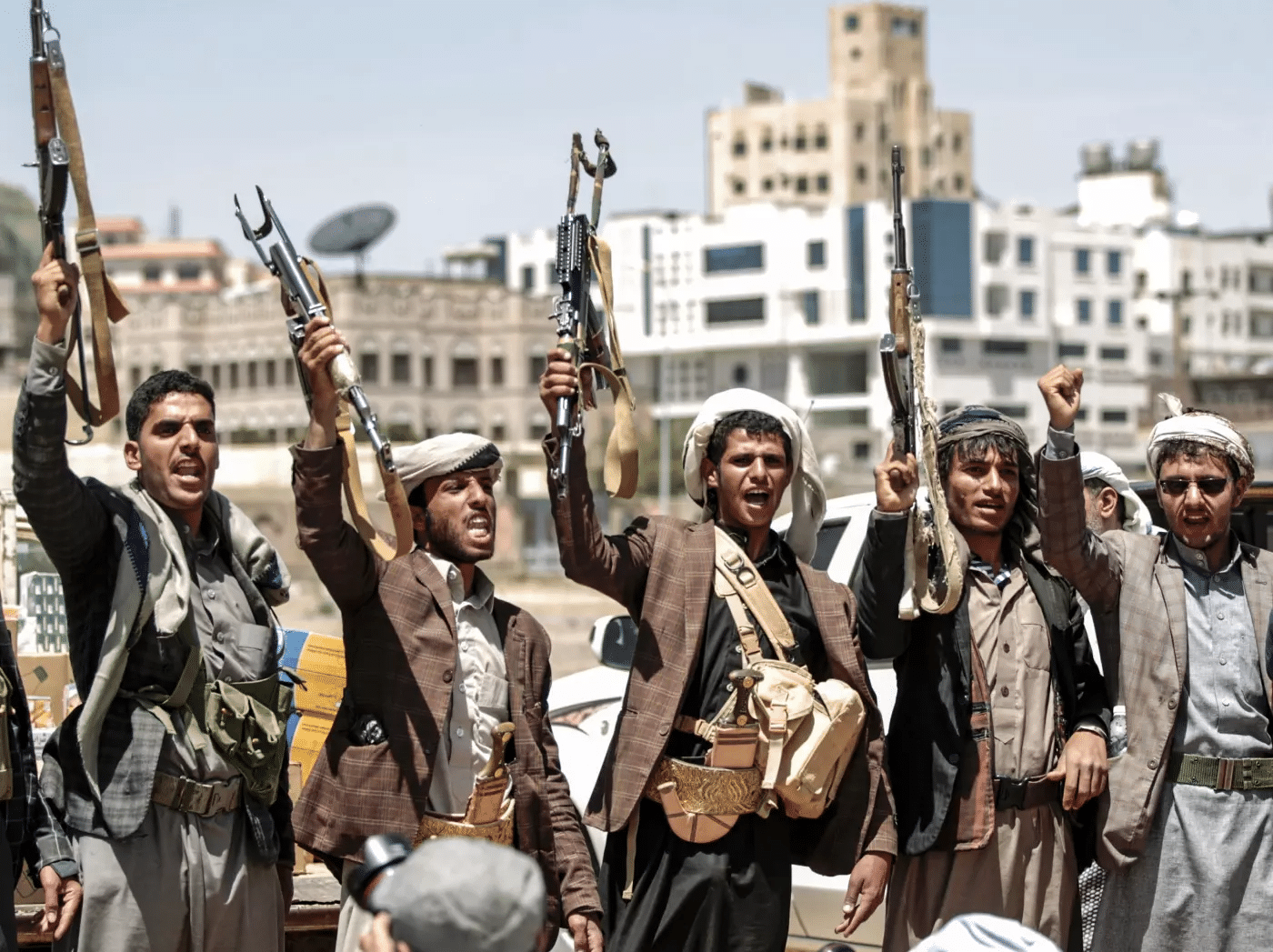News
Who Are The Houthis And Why Are They Attacking Ships In The Red Sea?

Yemen’s Iran-backed Houthi rebels are increasing their attacks on ships in the Red Sea, which they claim are in retaliation for Israel’s military war in Gaza.
The bombings have prompted some of the world’s largest ships and oil corporations to halt passage through one of the world’s most crucial maritime commerce routes, potentially causing a global economic shock.
There are worries that the Houthis’ attacks will turn Israel’s conflict with Hamas into a wider regional war because they are believed to have received their weapons and training from Iran.
Here’s what we know about the Houthis and why they’ve joined the fight.
Yemen’s Iran-backed Houthi rebels are increasing their attacks on ships in the Red Sea, which they claim are in retaliation for Israel’s military war in Gaza.

Who Are The Houthis And Why Are They Attacking Ships In The Red Sea?
The bombings have prompted some of the world’s largest ships and oil corporations to halt passage through one of the world’s most crucial maritime commerce routes, potentially causing a global economic shock.
There are worries that the Houthis’ attacks will turn Israel’s conflict with Hamas into a wider regional war because they are believed to have received their weapons and training from Iran.
Here’s what we know about the Houthis and why they’ve joined the fight.
The Houthi movement, also known as Ansarallah (Supporters of God), is one side of Yemen’s nearly decade-long civil conflict. It first appeared in the 1990s, when its leader, Hussein al-Houthi, established “Believing Youth,” a religious revival campaign for Zaidism, a centuries-old branch of Shia Islam.
The Sunni dictatorship that came to power after the 1962 civil war suppressed the Zaidis, who had ruled Yemen for centuries. Al-Houthi’s organization was created to represent Zaidis and oppose radical Sunnism, notably Saudi Wahhabi views. His closest adherents were dubbed Houthis.
How did they come to power?
Ali Abdullah Saleh, Yemen’s first president following the union of North and South Yemen in 1990, initially supported the Believing Youth. However, as the movement’s popularity grew and anti-government rhetoric got more strident, it challenged Saleh. Things came to a climax in 2003 when Saleh supported the US invasion of Iraq, which many Yemenis opposed.
The schism presented an opening for al- Houthis. He capitalized on public outrage by organizing massive protests. After months of chaos, Saleh issued an arrest warrant for him.
The Yemeni military murdered al-Houthi in September 2004, but his movement survived. As additional fighters joined the cause, the Houthi military wing strengthened. They seized control of the northern province of Saada in 2011 and agitated for the overthrow of the Saleh dictatorship.
Saleh decided to pass up authority to his Vice President Abd-Rabbu Mansour Hadi in 2011, although this government proved unpopular. The Houthis struck again in 2014, seizing control of parts of Yemen’s capital, Sanaa, before attacking the presidential palace early the following year.
Hadi escaped to Saudi Arabia, which, at his request, launched a war against the Houthis in March 2015. What was supposed to be a quick campaign dragged on for years: In 2022, a cease-fire was ultimately reached. It expired after six months, but the warring sides have not resumed full-scale fighting.
The United Nations has declared Yemen’s war to be the world’s worst humanitarian calamity. According to UN figures, about a quarter of a million people have been murdered during the fighting.
While the Houthis may lack the capabilities of Hamas and Hezbollah because of geography and technology, their strikes on commercial ships in the Red Sea may inflict a different kind of agony on Israel and its allies.
Who Are The Houthis And Why Are They Attacking Ships In The Red Sea?
The global economy has been served a series of painful reminders of the importance of this narrow stretch of sea that runs from Yemen’s Bab-el-Mandeb straits to Egypt’s Suez Canal – through which 12% of global trade flows, including 30% of global container traffic.
In 2021, a ship dubbed the Ever Given ran aground in the Suez Canal, closing the crucial commerce artery for about a week, stranding up to $10 billion in cargo per day and triggering long-term disruptions to global supply networks.
There are concerns that the Houthi drone and missile strikes on commercial vessels, which have been practically daily since December 9, will create an even greater blow to the global economy.
Maersk, Hapag-Lloyd, CMA CGM Group, and Evergreen, four of the world’s five leading shipping companies, have indicated that they will halt shipping via the Red Sea due to Houthi attacks. The oil giant BP announced on Monday that it would do the same, skyrocketing oil and gas prices.
The attacks could compel ships to take a far longer path around Africa, increasing insurance costs. Companies may pass on increased transportation costs to customers, raising prices at a time when governments throughout the world are struggling to control post-pandemic inflation.
The Houthis say they will only back down if Israel allows food and medicine into Gaza; its strikes could be aimed at inflicting economic anguish on Israel’s supporters in the belief that it will put pressure on Israel to stop bombing the territory.
As they aspire to govern northern Yemen, championing the Palestinian cause could be an attempt to garner legitimacy at home and in the region. It might also provide them an advantage over their Arab enemies, Saudi Arabia and the United Arab Emirates, whom they accuse of being US and Israeli stooges.
SOURCE – (CNN)



































